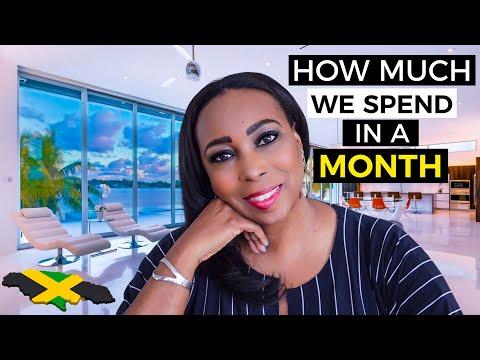Living in Jamaica has been an eye-opening experience, not just for the incredible beauty and vibrant culture, but also for the financial adjustments that come with it. When I first arrived here, I was both excited and anxious about how my budget would hold up. The cost of living in Jamaica, as I quickly learned, can vary significantly based on lifestyle choices and spending habits.
Initially, I had a rough idea of what my monthly expenses might be, but the reality proved to be quite different. I encountered a variety of expenses that I hadn’t fully anticipated. For example, the cost of groceries and dining out was noticeably higher than what I was accustomed to back home. On top of that, there were additional costs related to utilities, transportation, and even activities and entertainment.
To manage my finances effectively, I needed a clear understanding of how much I was spending and where my money was going. This meant diving deep into my spending habits and figuring out ways to track and control my expenses. Here’s a detailed account of how I tackled this challenge and successfully managed my finances while living in Jamaica.
The first step was to create a comprehensive budget. I started by listing all my sources of income and categorizing my expenses. I divided my expenses into fixed costs, such as rent, utilities, and insurance, and variable costs, including groceries, dining out, transportation, and entertainment. Fixed costs were relatively straightforward; they were consistent and predictable. However, variable costs required more attention as they fluctuated from month to month.
To track my expenses accurately, I used a budgeting app that allowed me to input all my transactions. This app was instrumental in helping me keep tabs on my spending patterns. Every time I made a purchase, whether it was a grocery run or a night out, I would enter the amount into the app. This real-time tracking was crucial in ensuring that I stayed within my budget and avoided any unnecessary overspending.
One of the biggest adjustments I had to make was managing my grocery expenses. In Jamaica, the cost of imported goods can be quite high. I soon realized that sticking to local produce and products not only helped me save money but also allowed me to experience the local cuisine more authentically. I started shopping at local markets and taking advantage of seasonal fruits and vegetables, which were not only cheaper but also fresher.
Dining out was another area where I had to be cautious. While Jamaica offers a plethora of delicious restaurants and street food options, eating out frequently can quickly drain your budget. I decided to limit dining out to special occasions and focused on cooking at home more often. This not only helped me save money but also allowed me to experiment with Jamaican recipes and improve my cooking skills.
Transportation costs were another aspect of my budget that needed careful management. I opted for public transportation as my primary mode of getting around, which proved to be much more economical than owning a car. In Jamaica, public transportation is relatively affordable, and using it helped me avoid the costs associated with owning and maintaining a vehicle, such as fuel, insurance, and maintenance.
Utilities were another area where I had to be mindful of my spending. In Jamaica, electricity costs can be relatively high, especially with the use of air conditioning. To manage this, I made a conscious effort to reduce my energy consumption by using fans instead of air conditioning whenever possible and being mindful of my usage of other electrical appliances.
Entertainment and leisure activities were also a part of my budget that required some planning. Jamaica offers a wealth of free and low-cost activities, from beautiful beaches to hiking trails and local festivals. I took advantage of these opportunities to enjoy my time without overspending. By prioritizing free or inexpensive activities, I was able to enjoy the island’s offerings without straining my finances.
One of the most effective strategies I employed was setting aside a specific amount of money each month for savings and emergencies. This created a financial buffer that helped me feel more secure and less stressed about unexpected expenses. I also made a habit of reviewing my budget and expenses regularly, which allowed me to make adjustments as needed and stay on track with my financial goals.
In addition to tracking my expenses, I also made it a point to educate myself about personal finance and financial management. I read books, attended workshops, and sought advice from locals who had been managing their finances in Jamaica for years. This additional knowledge was invaluable in helping me make informed decisions about my money.
Overall, living in Jamaica has taught me the importance of financial discipline and adaptability. By carefully tracking my expenses, making strategic adjustments, and prioritizing my spending, I’ve been able to manage my finances effectively and enjoy the incredible experiences that this beautiful island has to offer. It’s been a journey of learning and growth, and I feel more confident in my financial management skills than ever before.
